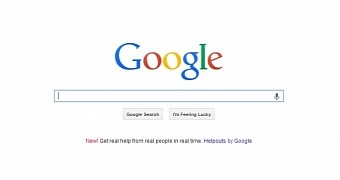The European Commission is back on Google’s case after it decided to reopen the antitrust investigation into the company’s search and advertising businesses.
Despite the fact that it appeared that things were finally going to settle down for Google in the European Union following some statements from Joaquin Almunia, the chief of the antitrust group, it seems that things are far from perfect, Bloomberg reports.
“Some complainants have introduced new arguments, new data, new considerations. We now need to analyze this and see if we can find solutions, Google can find solutions, to some of these concerns that we find justified,” Almunia said on the topic.
The previously proposed deal saw Google dedicating a special place on its page results pages for competitors’ products. The company’s competitors, with Microsoft at the lead, have protested against the move, saying that it wouldn’t solve anything. Microsoft went as far as to run an experiment on its own search engine and saw no real increase in the clicks made by users in the area where Google wants to deliver the competing products.
There were also quite a few protests to the fact that the EU Commission didn’t consult with competitors before accepting Google’s proposed deal.
During the past few months, however, EU regulators apparently received some new data regarding the Google probe and decided to once more look into the proposed deal since some of the complaints were very negative.
“We are now in contact with Google to see if they are ready to offer solutions,” said the European Commission’s spokesperson, Antoine Colombani.
Four years to find a solution
The investigation into Google’s practices began back in 2010 when the company’s monopoly on the search industry was brought into question. The Commission wanted to find out whether Google’s dominance on the European market, where it is the go-to search engine for some 90 percent of Internet users, requires any type of regulatory measures.
The main concerns about Google regarded how it always links to its own services, such as Google Maps and YouTube, but also the way rival products and services weren’t displayed as prominently even when they were part of advertising campaigns.
There were hopes that the entire process would come to an end with the latest proposed deals, but it wasn’t meant to be. It remains to be seen what kind of changes Google will have to make now and what steps it has to take to appease rivals, although this will likely be a never-ending list.

 14 DAY TRIAL //
14 DAY TRIAL //